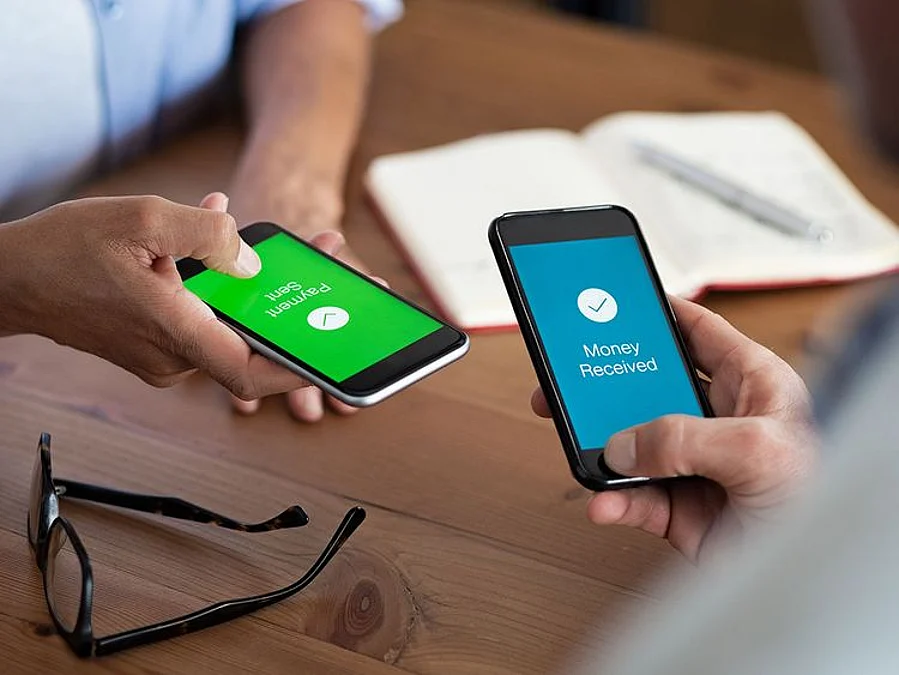By Zainab Husain
Dubai: Sending money home is a regular part of life for many expats in the UAE. But with rising bank fees and hidden charges, transferring even small amounts can get expensive, especially for those without access to traditional bank accounts.That’s why more low-income and underbanked expats are turning to digital wallets and remittance apps. These platforms often offer better exchange rates, lower fees, and faster transfers compared to banks or exchange houses. Fintech experts and financial coaches say these apps are not only more affordable, but also more user-friendly and secure.Here’s how to choose the right one and avoid paying more than you need to.. Why bank-free remittance options matterMany expats in the UAE, especially domestic workers, freelancers, and blue-collar employees are excluded from traditional banking services due to salary thresholds, documentation requirements, or minimum balance rules. This has created a growing demand for bank-free financial solutions that are simple, affordable, and accessible.“These workers tend to prefer simple, multilingual, and intuitive apps that remove the complexity of managing money digitally,” said Syed Muhammad Ali, CEO of myZoi, a UAE-based fintech platform focused on financial inclusion.He added that trust and human support are essential. “Services that offer help in multiple languages are more likely to resonate with this segment.”.Choose regulated apps for security and peace of mindOne of the first things to look for when choosing a remittance app, experts say, is whether the provider is licensed by the Central Bank of the UAE.“This ensures transparency and consumer protection,” Ali said. “It’s also important to review the full cost of the transfer, including any hidden fees. And consider apps that offer digital IBAN wallets, which act like bank accounts and can also be used to receive salaries and save money.”MyZoi, for example, offers a “Digital Wallet” tailored for underbanked users, along with a “One-to-Many” feature that lets users send money to up to five recipients back home for the cost of one transaction..How much extra is your online platform charging you for your remittances?
.Blockchain-powered transfers are growingBeyond wallets, blockchain-based platforms are also gaining traction among modern expats looking for faster, more secure money transfers.“It’s no longer just about sending money home efficiently, but also about making that hard-earned money work harder,” said Daniel Ahmed, COO and Co-Founder of Fasset, a blockchain-based financial super-app.Ahmed explained that blockchain technology enables fast, low-cost, cross-border transfers while also providing access to digital financial tools aimed at long-term wealth creation.“Transactions are transparently settled on-chain, reducing manual processes and making money movement more affordable. We’ve recorded over $1 billion in trading volume in just the first half of the year, which shows strong demand,” he added..UAE expats turn to cryptocurrencies as cost-effective means to send remittances home .Are remittance apps really better than banks or exchange houses?According to UAE-based financial coach Jay Adrian Tolentino, many standalone remittance apps are just as reliable as traditional exchange houses, sometimes even better.“I personally use Taptap Send, and before that, Denarii Cash, because they offer better exchange rates, are faster, and charge zero fees for most transfers to the Philippines,” Tolentino said.Most apps today offer features once only expected from banks: instant or same-day transfers, real-time tracking, and responsive customer service. Still, Adrian advises users to compare carefully..What to check before choosing a remittance appHere are Adrian’s top tips for choosing the right provider:Transfer limits: Some apps cap the amount you can send per day or month.Payout coverage: Not all apps support every bank or region in your home country.Exchange rate spread: Some providers claim “zero fees” but offer weaker rates, reducing how much your recipient receives.“The smarter way to compare is by looking at the total amount your family gets, not just the fee,” he said. “The remittance space is more competitive now, and that gives expats more control over their money.”.Why banks are the most expensive way to send moneyAccording to the World Bank, banks remain the most expensive remittance providers globally. In 2024, the average cost of sending $200 (around Dh735) via banks rose to nearly 14%, up from 11.5% a year earlier. By comparison:Money exchange houses charge about 5.4%Mobile remittance apps are as low as 2.8%Even traditional exchange houses like Al Ansari Exchange have started expanding their digital remittance offerings to stay competitive with fintech platforms..Best way to remit now, save money: Banks or exchanges, online or mobile apps? .Use comparison tools before sending moneyTo find the best deal, use free tools like the World Bank’s Remittance Prices Worldwide (RPW) tracker, which allows you to compare providers by transfer cost, speed and user ratings. This is especially useful for UAE expats looking to maximize the value of each transfer.For UAE expats, digital remittance apps offer a smarter way to send money home. Whether it’s through mobile wallets or blockchain platforms, the key is to choose regulated providers, understand the total cost of your transfer, and compare features to find what works best for your needs..Philippine peso to drop by July-end: Do Filipinos in UAE postpone remittances?.Sending money abroad? How to cut your remittance costs in 2025.Sending money to India from the UAE? What UAE remitters can expect from INR.Indian rupee halfway to 24 vs. UAE dirham: Remit or await bigger drop?
